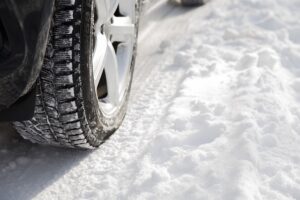You cannot register your vehicle without having insurance. There are basically three options for vehicle insurance – third-party, partial or comprehensive.
Third-party liability insurance is compulsory, but you can choose whether you would also like to have partial coverage or fully comprehensive coverage insurance for your vehicle.
The cost of your car insurance depends on various factors, like your age and your no-claims discount bonus (Schadenfreiheitsklasse). The longer you drive without any accidents, the cheaper your car insurance will be. Another factor in the price is the main purpose of the vehicle and the distances you will travel in general, for example, short city trips or long-distance trips on the highways. You can also insure your vehicle for only certain months, for example, if you only drive your cabrio in summer.
No claim bonus
- Most companies do not give you credit for your no-claim history in South Africa.
- One of our FB members reported that Debeka did acknowledge his no-claim record and assigned him to level 7.
- Another member also had joy with HUK Coburg but only after some convincing.
Someone also posted “HUK24 will accept a no claims bonus letter from SA, it must state for how many years no claims for motor own damage and also no claims for liability. I am sure some other companies also accept it if you email them and ask what Schadenfreiheitsklasse they will grant you, namely claim free group in years for motor own damage and for liability- as here in Germany they are treated separately.”
Renewal and changing providers
Please be aware that “Your car insurance is renewed automatically every year on January 1.”
If you want to change to another provider, you are allowed to do it until November 30.
If you don’t make any changes it will automatically renew.
Comparing products
Use Verivox or Tarifcheck to compare car insurance prices.
We also have companies/people listed on our website who can assist in getting quotes for vehicle insurance.

Chad Joubert – Wealth Advisor
DIE GUTE WAHL – THE GOOD CHOICE – Agency for Allfinanz Deutsche Vermögensberatung. We are here for you, we provide you with professional support in
Information on the web
- Article from Test.de about car insurance (Kfz-Versicherungsvergleich)
- VMK (Versicherungen mit Kopf) has a very informative webpage (in German) about car insurance.
Tips
- You can get insurance that allows you one accident per year without losing your no-claim status if you have an accident
- Read the small print! Always
- Be careful of hidden fees when a dealership organises your insurance for you
Terminology
| German | English | Information | |
| KFZ | Kraftfahrzeug | Vehicle | Als Kraftfahrzeuge im Sinne dieses Gesetzes gelten Landfahrzeuge, die durch Maschinenkraft bewegt werden, ohne an Bahngleise gebunden zu sein. |
| PKW | Personenkraftwagen | Passenger car | |
| LKW | Lastkraftwagen | Trucks | |
| NFZ | Nutzfahrzeug | Commercial or Utility vehicle | ein Kraftfahrzeug, das nach seiner Bauart und Einrichtung zum Transport von Personen oder Gütern bestimmt ist, oder zum Ziehen von Anhängern, aber kein Personenkraftwagen oder Kraftrad ist, sondern beispielsweise ein Omnibus, ein Lastkraftwagen, eine Zugmaschine oder ein Kranwagen. |
| Kfz-Versicherung | Vehicle Insurance | ||
| Zulassung | Registration |
Related content

Winter Tyres
The winter conditions in Germany can make the roads dangerous and slippery to drive on.Winter conditions are for example black ice, slippery snow, slush, slippery

Road Rules
Driving on German roads is very well regulated and if you don’t adhere to the rules you will get penalty points against your name

Driving and Driver’s licences
If you are only visiting, you need an International driver permit which you can apply for at the AA in South Africa If you stay



You must be logged in to post a comment.